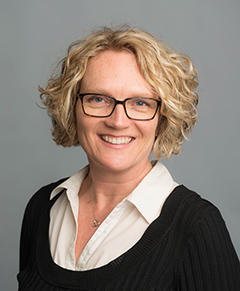
“Linguistic insecurity is a perception, a belief or a feeling that the language variety one uses or the way one speaks a particular language is not legitimate or valued in society,” says Meike Wernicke, an assistant professor in the Department of Language and Literacy Education at the University of British Columbia who is leading a discussion about linguistic insecurity on March 16 as part of uOttawa’s Mois de la Francophonie celebrations. “People usually measure their own language practices against what is viewed as a superior or standard language in society.”
According to Wernicke, linguistic insecurity is sometimes perpetuated by the belief that certain Canadian varieties of French are less prestigious or less legitimate than the French spoken in Paris or on Radio-Canada. It is further reinforced through the constant monitoring and correction of language by those who see themselves as gatekeepers of the French language. Within Canadian educational settings, research continues to show a persistent orientation towards European French as well as the tendency for teachers to aspire to an idealized standard for native speakers.
Another type of linguistic insecurity occurs in bilingual settings where the two languages each have a particular status in society and where the use of one versus the other reflects power dynamics. Here, linguistic insecurity is often created through a monolingual view of language, the idea that the best way to use a language is to avoid code-mixing or “translanguaging,” that is, mixing two or more languages in a particular instance to communicate. This linguistic purism makes us see anglicisms as a sign of deficient French language proficiency, for example.
But each francophone’s own distinctive ways of speaking are an important means of creating a francophone linguistic and cultural identity in Canada, given the dominant anglophone context of North America more generally, Wernicke says.
“It’s important to acknowledge the connection between language use and speakers’ identities, because to devalue someone’s way of speaking means that one is also devaluing that speaker as a person,” says Wernicke. “In the same way, when we devalue the language variety we are taught, be it Acadian French, Chiac, Franco-Manitoban, Franco-Colombien, Michif and so on, we are also devaluing the person who is teaching us that language — our teachers.”
Wernicke believes that the most important means of combatting linguistic insecurity is to raise people’s awareness about language — what language is, how it works, what it means to function as a multilingual speaker, the political implications of language, the way we make use of language to discriminate and categorize people in society and so on.
“When we have a greater understanding of how language is learned and how we access and make use of linguistic knowledge, we realize how many of our beliefs about language, our language ideologies, are invented in society, for a variety of reasons,” she says.
Hosted by the University’s Official Languages and Bilingualism Institute (OLBI), Wernicke’s presentation will draw on data from her research on FSL teachers and discuss various manifestations of linguistic insecurity. Her talk will centre on so-called “non-Francophone” teachers and the ways they navigate language ideologies in order to construct a legitimate professional identity.
Wernicke concludes: “We need to understand language as political and social action, not just an individual means of communication. Language is complex and it is intricately interwoven with our identities, our linguistic and cultural experiences, and our place in society. An important means of developing critical language awareness is through education, hence the important role teachers and teacher educators play in this endeavour.”
Register for the conference on language insecurity.
Date: Tuesday, March 16, 2021
Time: 1:00 p.m. to 2:00 p.m.
Location: Online presentation, on Zoom
Language: Bilingual
